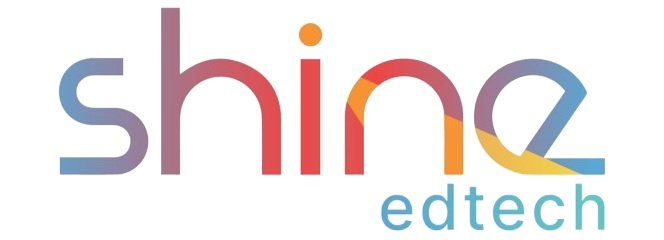
Individualising learning for every child
Empowering children to own their future
Introducing The Feurstein LPAD-D Assessment:
Make meaning of your child’s uniqueness in learning.
The Learning Profile Assessment Device-Digital (LPAD-D) is an advanced learning diagnostic tool from designed by the world-renowned cognitive psychologist Reuven Feuerstein – It is a transformative product that has captured our imagination and ignited our passion for revolutionizing education.
As pioneers in Asia, SHINE proudly brings this gem to the forefront, bridging the gap between potential and realization. With the LPAD-D, we embark on a journey of discovery, uncovering each child's unique learning profile, motivations, and strategies for growth.
The LPAD-D is grounded in Feuerstein's Theory of Structural Cognitive Modifiability (SCM) and the concept of Mediated Learning Experience (MLE). Unlike traditional intelligence tests that measure static cognitive abilities at a given point in time, the LPAD aims to assess the individual's capacity for learning and cognitive change. It focuses on understanding the potential for cognitive development rather than merely evaluating existing knowledge or skills.
It’s not about assessments, it’s about nurturing young narratives.
Key Concepts of the LPAD
Structural Cognitive Modifiability (SCM): Think of the human brain like a muscle that gets stronger with exercise. SCM is the idea that our brainpower isn't set in stone – we can make it better by learning and practicing new things.
Mediated Learning Experience (MLE): This is like having a personal coach for your brain. Someone helps you make sense of what you're learning by giving you extra information or a different way to think about things. It’s like having a guide to help you understand and remember better.
Dynamic Assessment: Instead of just giving you a test and saying "good luck," dynamic assessment is more like someone sitting with you during the test, giving you hints and help to figure out the answers. It’s more interested in how you solve problems and learn from the help you get than just the number of correct answers you give.
The LPAD-D is a detailed and adaptable dynamic assessment tool designed to determine an individual’s cognitive strengths and challenges. It aims to find out areas requiring further development to enhance cognitive thinking skills. By providing a clear picture of one’s thinking style and cognitive profile, LPAD results help guide what kind of learning activities can be done alone or in a group, to further enhance learning. This makes LPAD a valuable tool for classrooms and individuals.
The Science behind it
The Feurstein Publishing
The LPAD is based upon the theory of structural cognitive modifiability. The theory attempts to account for the differences in the capability of individuals to benefit from both formal and informal opportunities to learn. Feuerstein (Feuerstein, 1980; Feuerstein, Jensen, Hoffman, & Rand, 1985) has argued that a universal modality of learning is represented by the direct exposure of the individual to sources of stimuli, but that this modality alone can account neither for the observed differences in intellective functioning nor for the phenomenon of culture and the fact that people invest themselves in need systems only remotely related to their biological survival.
The theory presumes that the crucial determinant of the development in humans of higher levels of cognitive functioning depends upon the growing child's opportunity to benefit from mediated learning experiences (MLE). In this second modality of learning - and contrary to the fragmented, disassociated, and even random fashion in which stimuli reach the organism's systems through direct exposure experiences-stimuli are selected by a mediator; their appearance is scheduled in time and organized in space; and they are framed by goals and attributes, regulated in intensity through repetition, and enhanced through being connected by purpose and imbued with meaning. The mediator serves as a powerful filter, assisting the child in structuring his or her experience, expanding experience to areas inaccessible to the learner through the sheer activation of sensorial systems, thereby instilling and enlarging need systems.
What the LPAD-D offers
With the Learning Potential Assement Device (LPAD), interventions and behavioural changes are no longer the final limit to an individual’s potential. Current limitations are only relevant to the specific moment and context. This philosophy stresses that future adaptability is possible. The key idea is to approach assesment with openness and adaptability, recognising the dynamic nature of human potential and the need for flexibility in addressing individual needs over time.
Within 120 to 180 minutes - a full assessment of any individual from 5 to 10 years old.
The Input Phase
Learn how your child perceives, gathers and interprets information. The indicators used include:
Sharpness or blurred perceptions.
Spatial orientation and stable systems of reference in establishing organization in space.
Conservation of constancy’s across variation in one or more dimensions.
Consideration of information coming from 2 or more sources and how input is treated.
The Elaborational Phase
Unravel the internal processing of the input where the child analyses, synthesizes, and transforms information that they receive. The indicators used include:
Perceptivity of existence of a problem and its definition
Ability or inability to select relevant as opposed to irrelevant cues in defining a problem
Existence of spontaneous comparative behaviours or the limitation of its application
Episodic grasp of reality
Understanding establishment of relationships, need for purusing logical evidence etc
The Output Phase
Understand how he or she communicates and demonstrates the results of his or her cognitive processing. The indicators used include:
Communication modalities
Ease and difficulty in projecting virtual relationships
Trial and error responses
Sufficient or the lack of verbal or other tools of communicating adequately elaborated responses
Precision and accuracy in communication of one’s responses
“Human potential is one’s capacity to improve and reach the limit of one’s ability to develop aptitudes and skills.”
- Dr Reuven Feuerstein
In 2012, Dr Reuven Feuerstein was nominated for the Nobel Peace Prize for his work with children, in particular, with developmentally disabled children and adults around the world.
Keen to introduce this opportunity to your schools, learning centers, or tuition classes?
Interested in partnering with us for collaboration?
Eager to join our SHINE community?
Who are we?
At SHINE, we believe every child is unique and learns differently. We use well-researched assessment tools to understand children’s learning profiles. The development of core skills as well as cognitive and executive function skills are essential for acquiring new knowledge. These are foundational skills that will remain with them throughout their lives.
Learning Sciences, AI and Technology Advancing Research
In SHINE, our relentless goal to bring out the best in a child, leading us to design and build technology with AI integrating the best knowledge from around the world. We aim to be a leader in education technology in deep learning, fronting inventions that make sense in today’s world.
Join us in transforming the learning of every child in this world with AI and technology, one step at a time.



